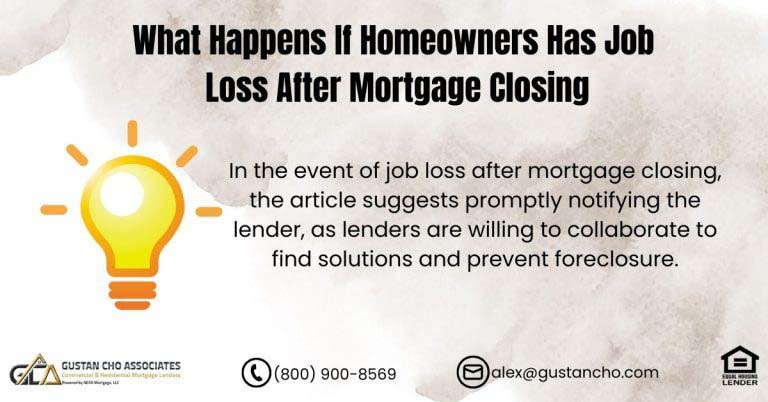This guide covers how do mortgage underwriters calculate income of borrowers. Income is the most important aspect of qualifying for a mortgage loan. Homebuyers can have prior bad credit and low credit scores and still qualify for a home loan if they have income. There are strict lending guidelines with regards to income and the types of income lenders can use. Mortgage lenders want to feel confident borrowers have the ability to repay their housing payment:
Mortgage borrowers cannot qualify for a mortgage with perfect credit if they cannot source and document income. No doc and stated income mortgage loans no longer exist after the real estate collapse of 2008.
Besides the income guidelines from HUD and Fannie Mae, mortgage underwriters have discretion on income and whether a type of income can be used for qualification purposes. There are certain ways how do mortgage underwriters calculate income of borrowers on home purchase and refinance transactions. In the following paragraphs, we will cover how do mortgage underwriters calculate income of borrowers.
How Do Mortgage Underwriters Calculate Income of 1099 Wage Earners
There are certain ways How Do Mortgage Underwriters Calculate Income. Borrowers who are 1099 wage earners, mortgage underwriters will require a minimum of two years 1099 income and two years of tax returns. Advantages of 1099 income wage earners are they can write off unreimbursed business expenses where they pay less in taxes.
Way how do mortgage underwriters calculate income is if borrowers had a larger income on the most current year, they will average the two years 1099 income and divide that by 24 months to use as monthly gross income.
If earned a lesser amount the most current year than the prior year, then the lower year’s adjusted gross income will be used. So they will use the most recent year’s declining income and divide it by 12 instead of the two-year average. That income will be divided by 12 months to yield the monthly gross income that can be used for mortgage qualification purposes. This is since it is declining income. Or depending on how it is declining, may not qualify altogether due to declining income.
Not Sure How Underwriters Look at Your Income?
Learn how mortgage underwriters calculate income of borrowers before you apply
Strategies on How Do Mortgage Underwriters Calculate Income
Mortgage underwriters use various methods to calculate and verify borrowers’ income when evaluating their ability to repay a loan. In the following paragraphs, we will cover common ways underwriters calculate income.
How Do Underwriters Calculate Employment Income
They review the borrower’s W-2 forms from the past two years to determine their base salary. Salaried employees may average the income from the W-2s or use the lower figure. Hourly/commission workers request recent pay stubs to calculate year-to-date income.
How Underwriters Calcualte Self-Employment and Business Income
Underwriters typically require the most recent two years of personal and business tax returns. They analyze the net income from the borrower’s IRS Form 1040 and business schedules. They may add back certain deductions like depreciation to calculate income.
How Mortgage Lenders Calculate Rental Income
Underwriters evaluate the rental income on Schedule E of the tax returns for rental properties. They usually take 75% of the rental income to account for vacancies and expenses.
Other Income Sources
Underwriters may consider other stable income sources like Social Security, pensions, disability, alimony, etc. They require documentation like award letters and proof of consistent receipt of this income.
Income Stability and Continuity
Underwriters look for stability in the borrower’s income over the past two years. They may average the income over 24 months or use the lower of the two years. For new jobs, they may only use the current lower income amount.
Income Calculations Used By Mortgage Underwriters
Underwriters calculate the total qualifying income based on allowable income sources. They then compare this against the proposed housing payment and other debts to ensure it meets debt-to-income ratio guidelines. Throughout the process, underwriters meticulously review income documentation. They may ask for additional verification or clarification to ensure the income figures are accurate and stable enough to approve the mortgage.
How Underwriters Calculate W-2 Income
W-2 income is pretty straightforward. Most lenders will use the most recent paycheck stub to calculate income for W-2 wage earners. Mortgage underwriters can deny borrowers with steep declining income year after year. Or may use the most recent income to calculate monthly gross income. The disadvantage of 1099 wage earners is lenders use adjusted gross income which is income after deductions of unreimbursed business expenses.
Year-to-date 1099 income will most likely be required to see if income is in line borrowers will make the same amount as of the prior years.
If year date to date 1099 income is a declining income, then the underwriter may decide to use the year-to-date income. Mortgage underwriters will require two years of tax returns to see whether borrowers have written off any expenses on their tax returns. With written off expenses from their tax returns, those deductions will be deducted from their income and adjusted and reflected on their monthly gross income qualifications.
Increasing Income Due To Consistent Raises
Borrowers on the same job and have been getting consistent income, a mortgage underwriter may use the most recent pay grade to qualify income. This holds true as long as the most recent raise can be confirmed through verification of employment. The verification of employment will state job and income is likely to continue for the next three years. Some lenders, not too many, will average the past two years’ W-2 income. Others will just use the most recent 30 days paycheck stubs as current income.
W-2, 1099, or Self-Employed?
We’ll show you exactly how mortgage underwriters calculate income of borrowers in your situation
How Underwriters Calculate Declining Income
If income has been declining year to year, lenders may either average the past two years’ W-2 income. Some lenders may use the most recent income as income in qualifying borrowers. Some lenders will not qualify borrowers if they have steep declining income year after year. If the lender does not qualify or denies borrowers a loan due to the fact they have declining income, then go to a different lender. This is because not all lenders have the same income qualification guidelines.
How Lenders Treat Gaps in Employment
Homebuyers multiple jobs in the past two years or gaps in employment, here is how it works. The gap in employment where borrowers were unemployed for six months or less and just got a new job. Income from a new job will be used. 30 days of paycheck stubs will be required prior to closing on the mortgage. Unemployed for six or more months: If a borrower has been unemployed for six months or longer, the borrower need to have been employed on a new full-time job for at least six or more months. The borrower needs to have earned full-time income from a new job to be used to qualify for a mortgage. The borrower needs to have offer letter of employment. The borrower for a new mortgage needs to have a full-time job.
How Do Mortgage Underwriters Calculate Income: Overtime and Other Income
Borrowers with overtime income, part-time income, child support, alimony, royalty, and bonus income can use those types of income as long as they have had a two-year consistent history. Verification of employment will require confirmation that overtime income, part-time income, and bonus income will likely continue for the next three years.
Self-Employed and Hate Your Tax Returns?
Learn how mortgage underwriters calculate income of borrowers with write-offs and business expenses










